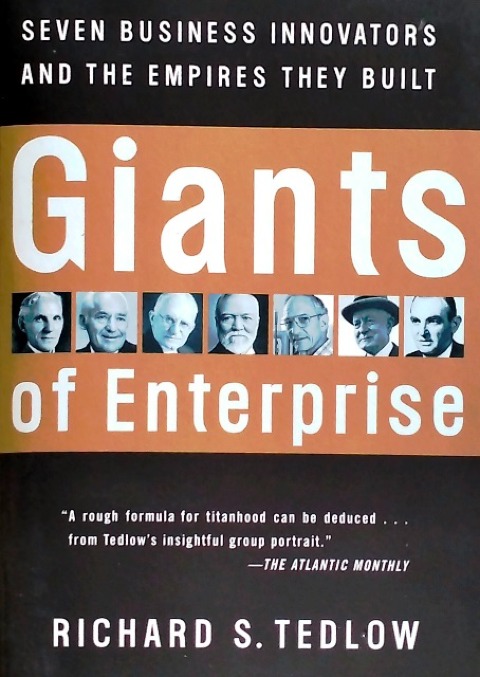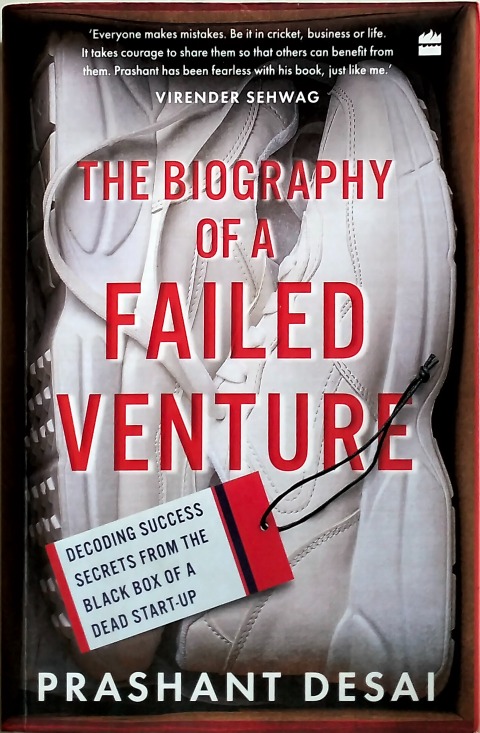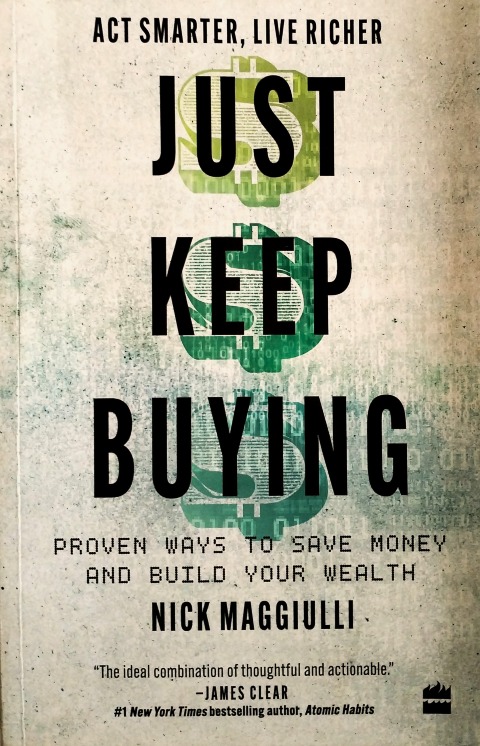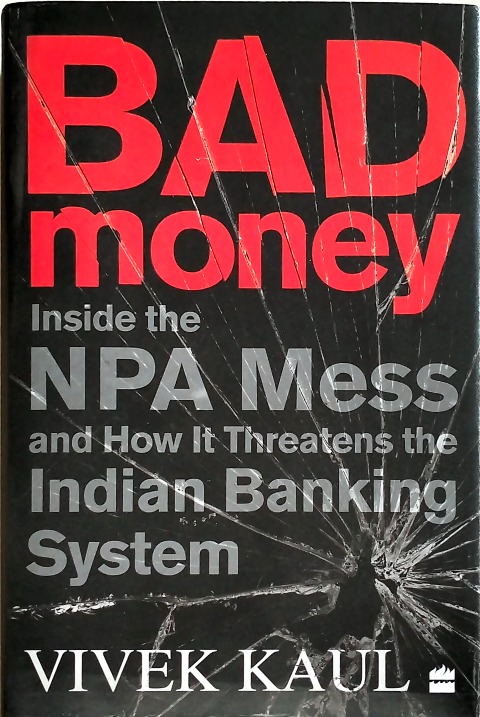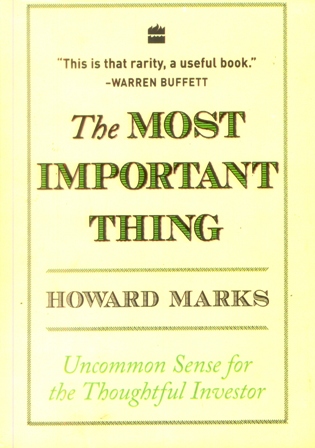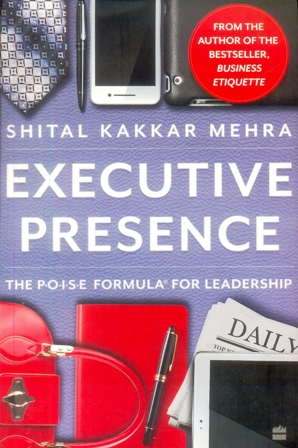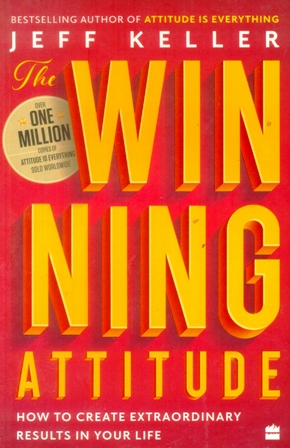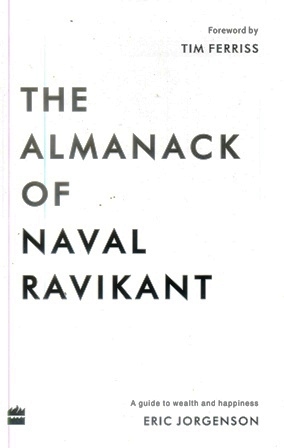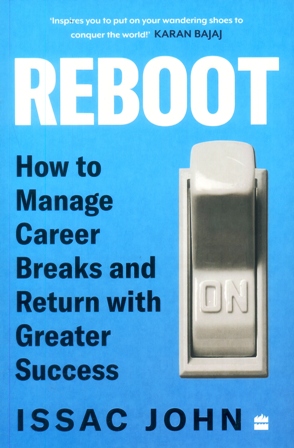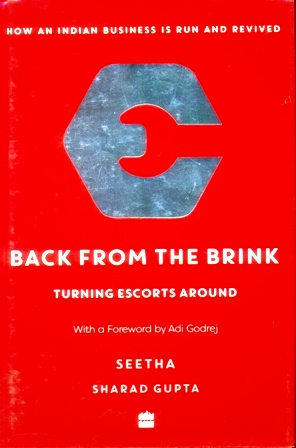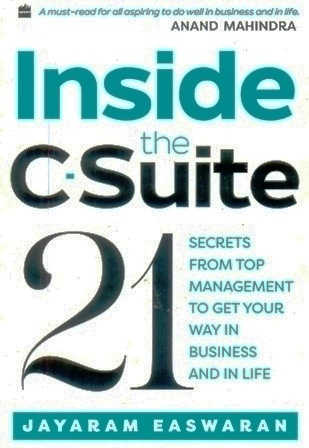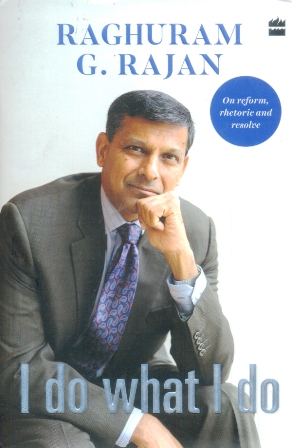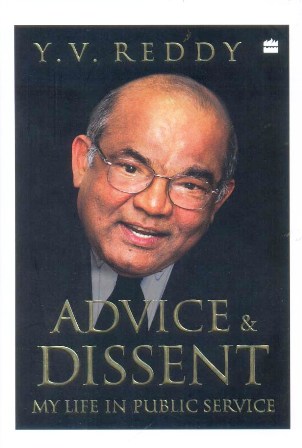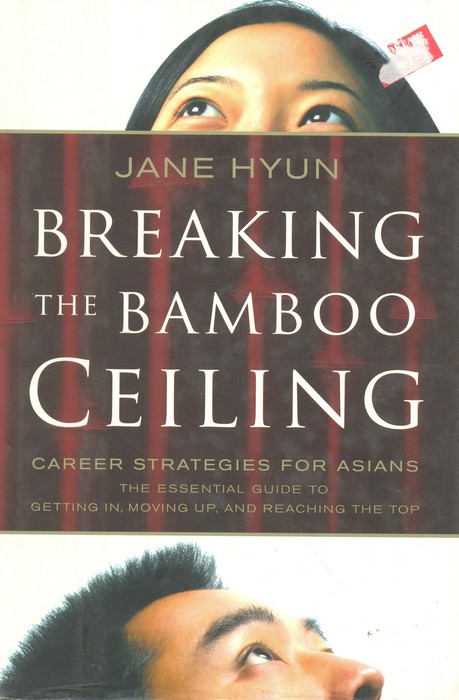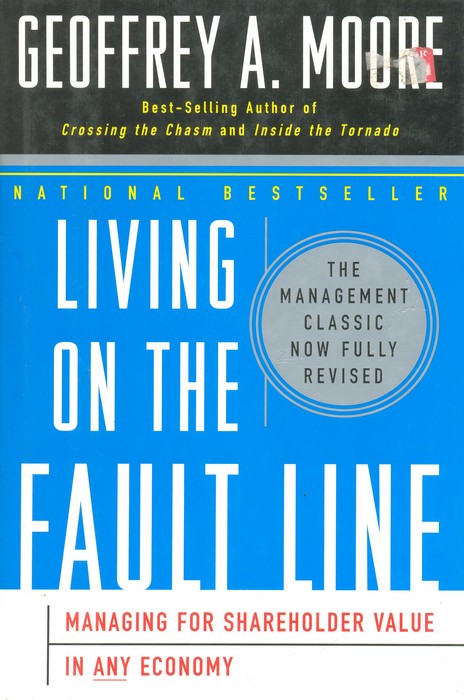-
Giants Of Enterprise
Masterfully combining his understanding of business and American history, Harvard Business School professor Richard S.Tedlow illuminates the professional and personal lives of these nineteenth- and twentieth- century titans, men with penetrating insight whose need to fulfill their destiny outweighed their fear of failure.
-
The Biography Of A Failed Venture
THE STORY OF A TRULY INDIAN SPORTS BRAND THAT COULD GO PLACES BUT FAILEDPrashant Desai was seven when he lost his father. Growing up in poverty, his single-minded focus was to become wealthy and successful. Ranking fourth on the all-India Cost and Works Accountants exam at the age of twenty-one, joining the corporate world and working with leaders such as Rakesh Jhunjhunwala, Kishore Biyani and Jignesh Shah was a dream run that Prashant enjoyed, one that very few could even imagine and achieve. in April 2017, Prashant Desai founded a venture to build the first truly Indian sports brand - D:FY. In six months, Rajiv Mehta, who started Puma India and led it for seven years, joined him as a partner. They opened seventeen stores in seven cities, riding on great aspirations and confidence. The business lost Rs 30 crore in thirty months, virtually wiping out all that Prashant had earned for nearly thirty years. The venture failed not because Prashant did not possess the necessary vision, determination and courage; it failed because the number of things Prashant did wrong exceeded the number of things he did right.One could weep over the fuselage or decode the black box. So, when Prashant decided to decode it, new possibilities emerged, revealing a treasure trove of success secrets. The Biography of a Failed Venture provides a brutally honest account of why D:FY failed and how entrepreneurs can avoid these pitfalls to make their business ventures successful.
-
Just Keep Buying
Everyone faces big questions when it comes to money - questions about saving, investing, and whether you’re getting it right with your finances. Unfortunately, many of the answers provided by the financial industry have been based on belief and conjecture, rather than data and evidence - until now. In Just Keep Buying, the hugely popular finance blogger Nick Maggiulli crunches the numbers to answer the biggest questions in personal finance and investing, while providing you with proven ways to build your wealth right away. You will learn why you need to save less than you think; why saving up cash to buy market dips isn’t a good idea; how to survive (and thrive) during a market crash; and much more. By following the strategies revealed here, you can act smarter, and live richer, each and every day. It’s time to take the next step in your wealth-building journey. It’s time to just keep buying.
-
Bad Money
Over the last decade, Indian banks in general and the government-owned public sector ones in particular have gradually got themselves into a big mess. Their bad loans, or loans which haven't been repaid for ninety days or more, crossed Rs 10 lakh crore as of 31 March 2018. To put it in perspective, this figure is approximately seven times the value of farm loan waivers given by all state governments in India put together. And this became the bad money of the Indian financial system. Why were the corporates unable to return these loans? Was it because they had no intention of doing so?Who were the biggest defaulters of them all? Are Vijay Mallya and Nirav Modi just the tip of the iceberg?How much money has the government spent trying to rescue these banks?How are the private sector banks gradually taking over Indian banking?Is your money in public sector banks safe?How are you paying for this in different ways?And what are the solutions to deal with this? In Bad Money, Vivek Kaul answers these and many more questions, peeling layer after layer of the NPA (non-performing assets) problem. He goes back to the history of Indian banking, providing a long, deep and hard look at the overall Indian economy. The result is a gripping financial thriller that is a must for understanding a crisis that threatens our banking system and economy.
-
The Most Important Thing
"This is that rarity, a useful book."--Warren Buffett Howard Marks, the chairman and cofounder of Oaktree Capital Management, is renowned for his insightful assessments of market opportunity and risk. After four decades spent ascending to the top of the investment management profession, he is today sought out by the world's leading value investors, and his client memos brim with insightful commentary and a time-tested, fundamental philosophy. Now for the first time, all readers can benefit from Marks's wisdom, concentrated into a single volume that speaks to both the amateur and seasoned investor. Informed by a lifetime of experience and study, The Most Important Thing explains the keys to successful investment and the pitfalls that can destroy capital or ruin a career. Utilizing passages from his memos to illustrate his ideas, Marks teaches by example, detailing the development of an investment philosophy that fully acknowledges the complexities of investing and the perils of the financial world. Brilliantly applying insight to today's volatile markets, Marks offers a volume that is part memoir, part creed, with a number of broad takeaways. Marks expounds on such concepts as "second-level thinking," the price/value relationship, patient opportunism, and defensive investing. Frankly and honestly assessing his own decisions--and occasional missteps--he provides valuable lessons for critical thinking, risk assessment, and investment strategy. Encouraging investors to be "contrarian," Marks wisely judges market cycles and achieves returns through aggressive yet measured action. Which element is the most essential? Successful investing requires thoughtful attention to many separate aspects, and each of Marks's subjects proves to be the most important thing.
-
Executive Presence
Shital Kakkar Mehra, India's leading Executive Presence coach and bestselling author, has trained numerous CEOs and star performers over the last two decades. In this book, she has shared her proven POISE formula for success; tools to help you maximize your potential and fast-track your career to the coveted role of a CEO. Executive Presence is the mysterious 'it' factor in leadership. How do you present yourself? Are you assertive? Do you inspire confidence? How do you engage with stakeholders? Crack the code on Executive Presence with: Physical Presence: Refine body language skills.Online Presence: Build your global personal brand.Influencer Presence: Master executive maturity; learn to 'speak up'.Stage Presence: Inspire teams with effective public-speaking skills.Engagement Presence: Build strong and diverse networks.
-
The Winning Attitude
As a motivational speaker and coach, one question that Jeff Keller often gets asked is 'What separates successful people from everyone else?' His answer is an overwhelming stress on the 'right attitude'. In fact, it always boils down to what Jeff popularly refers to as the 'winning attitude'. No matter where you are on your journey of self-development, a winning attitude will always be the differentiator as Jeff Shows in example after example, covering virtually all the important aspects of our life. This book presents fifty-four golden principles that can dramatically change your life. For more than thirty years, these principles have changed Jeff's life for the better - and they have done it for millions of others. Read it, enjoy it, apply the principles and you will create extraordinary results in your life.
-
The Almanack Of Naval Ravikant
GETTING RICH IS NOT JUST ABOUT LUCK; HAPPINESS IS NOT JUST A TRAIT WE ARE BORN WITH.These aspirations may seem out of reach, but building wealth and being happy are skills we can learn.So what are these skills, and how do we learn them? What are the principles that should guide our efforts? What does progress really look like?Naval Ravikant is an entrepreneur, philosopher, and investor who has captivated the world with his principles for building wealth and creating long-term happiness. The Almanack of Naval Ravikant is a collection of Naval's wisdom and experience from the last ten years, shared as a curation of his most insightful interviews and poignant reflections. This isn't a how-to book, or a step-by-step gimmick. Instead, through Naval's own words, you will learn how to walk your own unique path toward a happier, wealthier life.
-
Reboot : How to Manage Career Breaks and Return wi
'It's hard for me to say this, knowing the great feedback most of my peers had for you, but at this stage for our business in India, we just require someone who has some more entertainment marketing experience than you do. Hence, we wouldn't be taking your candidature forward for this position.' When Issac quit his dream job of Head of Marketing at PUMA in 2015 and took a career break to study screenwriting in New York, little did he know what he had signed up for. Over the next eighteen months, he would face over a hundred rejections from famed brands, headhunters, publishers, talent agencies and producers. After being rejected in the final interview rounds of brands like Uber, Netflix and Airbnb, he slowly and steadily clawed his way back into a mainstream career. Issac went on to lead a team of over a hundred people at Discovery, having built their direct-to-consumer OTT business in Asia-Pacific (discovery+), and has authored two books - all in a span of five years since that career break. Over the past two years, Issac spoke to more than fifty working professionals, all of whom went through a break in their career for various reasons. Reboot is an intimate, honest and rich compendium of all those experiences, mistakes, lows and highs that people confronted with a career break go through. It shares the message that no matter the odds you are up against, a career break is always temporary, and, in many cases, it can even prove to be life-changing.
-
Inside The C.Suite 21 Lessons From Top Management
In the corporate world, one question that's often asked is, 'What does it take to reach the top and stay there?' Be it the fancy MBA in a hurry to get to the top or the hard-working manager slogging for years or the sycophant who flatters his way up the corporate ladder, the C-suite is the ultimate aspiration for everyone. Taking you right inside the C-suite, Jayaram Easwaran presents twenty-one stories based on real incidents during his three-decade career. Each story has a message that addresses the most pertinent problem of our work lives. Stories about the dilemma of being virtuous when the stakes are high, the pitfalls of judging a book by its cover, the dangers of blind ambition, ego squabbles among top brass and many others make this book a treasure-trove of wisdom. This is a book that will help you get your way in business and life.
-
I Do What I Do
Raghuram G. Rajan is the Katherine Dusak Miller Distinguished Service Professor of Finance at the Booth School of Business at the University of Chicago. He was the Governor of the Reserve Bank of India between 2013 and 2016, and also served as Vice-Chairman of the Board of the Bank for International Settlements between 2015 and 2016. Dr Rajan was the Chief Economist and Director of Research at the International Monetary Fund from 2003 to 2006. Dr Rajan's research interests are in banking, corporate finance, and economic development, especially the role finance plays in it. He co-authored Saving Capitalism from the Capitalists with Luigi Zingales in 2003. He then wrote Fault Lines: How Hidden Fractures Still Threaten the World Economy, for which he was awarded the Financial Times-Goldman Sachs prize for best business book in 2010. Dr Rajan was the President of the American Finance Association in 2011 and is a member of the American Academy of Arts and Sciences and the Group of Thirty. In 2003, the American Finance Association awarded Dr Rajan the inaugural Fischer Black Prize for the best finance researcher under the age of forty. The other awards he has received include the Deutsche Bank Prize for Financial Economics in 2013, Euromoney magazine's Central Banker of the Year Award 2014 and The Banker magazine's Global Central Banker of the Year award in 2016.
-
Advice And Dissent
Any governor of the Reserve Bank of India must walk a tightrope. He must seem to be independent - but without offending the government of the day. He is not equal to the government but must convince others that he is not subordinate to it either. And if he can do all this with the right policies in place, he may leave behind a career as illustrious as that of Dr Y.V. Reddy, Governor of the RBI from 2003 to 2008, a time of high growth, low inflation, an appreciated rupee and a robust banking system that withstood the global financial crisis. Advice and Dissent throws light on the lessons of Dr Reddy's fascinating professional life, as on the politics of his years in public service. About the Author Dr Y. V. Reddy is a former IAS officer of the 1964 batch who served as the Governor of the Reserve Bank of India from 2003 to 2008. He was awarded the Padma Vibhushan in 2010.
-
Breaking The Bamboo Ceiling
You're educated and ambitious. Sure, the hours are long and corporate politics are a bane, but you focus on getting the job done, confident that you will be rewarded in the long run. Yet, somehow, your hard work isn't paying off, and you watch from the sidelines as your colleagues get promoted. Those who make it to management positions in this intensely competitive corporate environment seem to understand an unwritten code for marketing and aligning themselves politically. Furthermore, your strong work ethic and raw intelligence were sufficient when you started at the firm, but now they're expecting you to be a rainmaker who can "bring in clients" and "exert influence" on others. The top of the career ladder seems beyond your reach. Perhaps you've hit the bamboo ceiling. For the last decade, Asian Americans have been the fastest growing population in the United States. Asians comprise the largest college graduate population in America, and are often referred to as the "Model Minority"
-
Living on the Fault Line
The fault line -- that dangerous, unstable seam in the economy where powerful innovations and savage competition meet and create market-shattering tremors. Every company lives on it; no manager can control it. In the original edition of Living on the Fault Line, Geoffrey Moore presented a compelling argument for using shareholder value (or share price) as the key driver in management decisions. Moore now revisits his argument in the post-Internet bubble world, proving that the methods he espouses are more germane than ever and showing companies how to use them to survive and thrive in today's demanding economy. Extending the themes of Crossing the Chasm and Inside the Tornado, his first two books on the dynamics of the high-tech markets, Moore shows why sensitivity to stock price is the single most important lever for managing in the future, both as a leading indicator of shifts in competitive advantage and as an employee motivator for making necessary changes in organizations heretofore impervious to change. This revised and updated edition includes: A deeper emphasis on core versus context, which has emerged as the key distinction in allocating resources to improve shareholder value A new Competitive Advantage Grid that will aid managers in achieving and sustaining competitive advantage, the most important component in managing for shareholder value An expanded Value Discipline Model as it relates to the Competitive Advantage Grid Analysis of the powerful new trend toward core/context analysis and outsourcing production duties Updated models of organizational change for each stage of market development As disruptive forces continue to buffet the marketplace and rattle the staid practices of the past, Moore offers a brilliant set of navigational tools to help meet today's most compelling management challenges.

